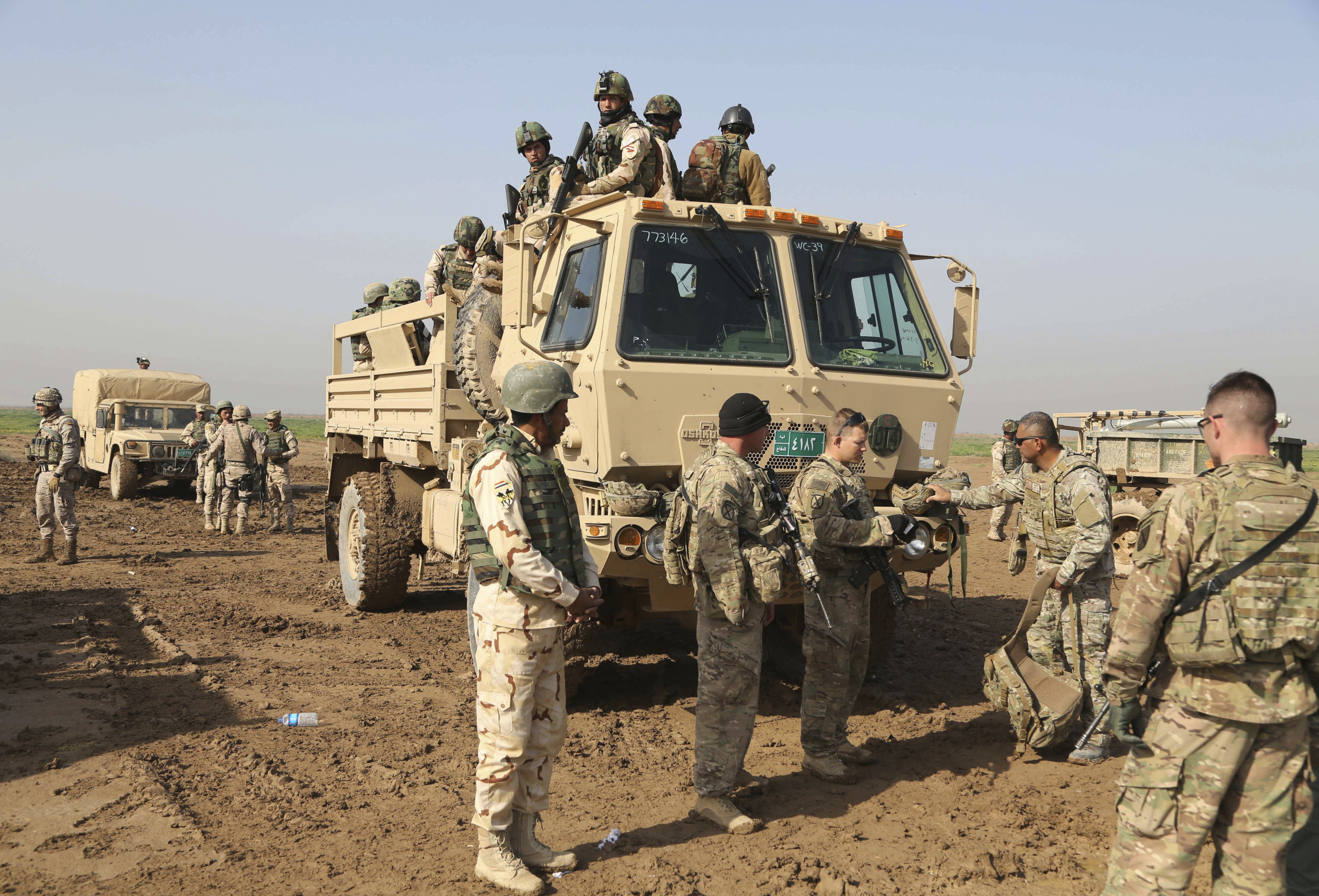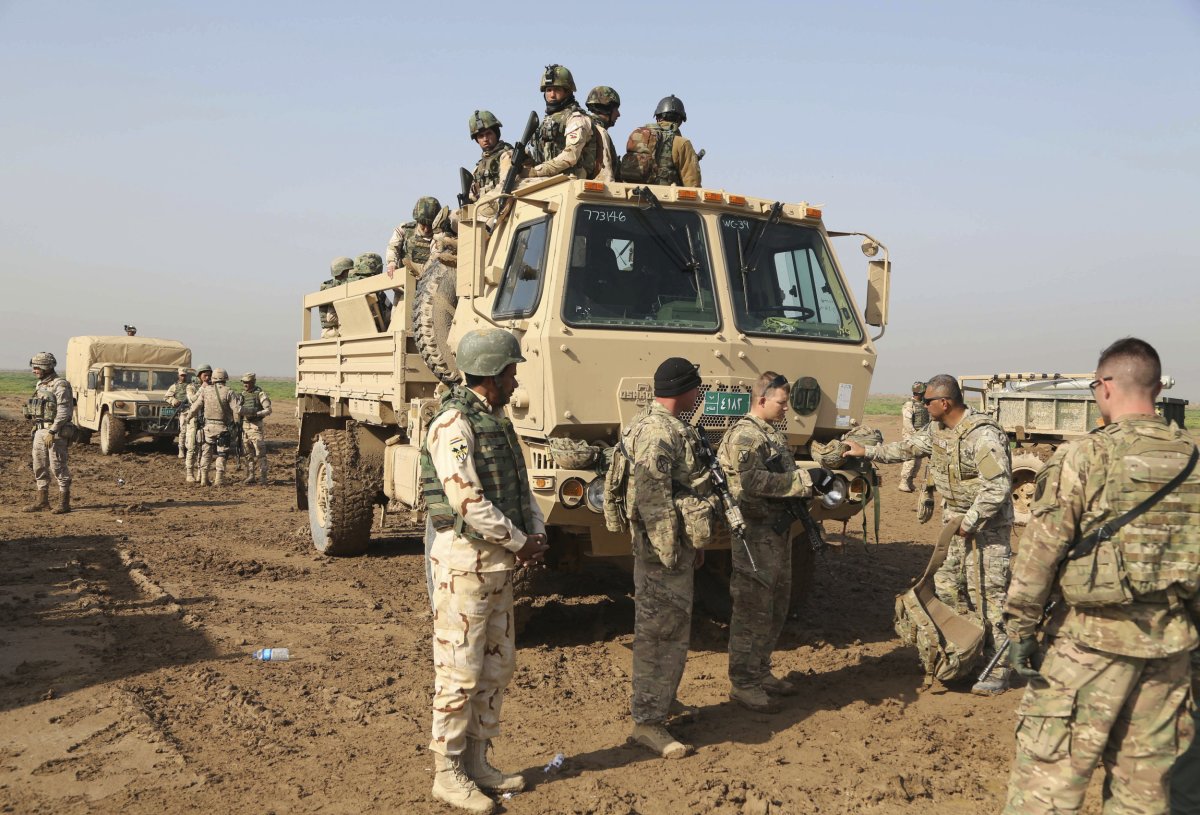
Following U.S. airstrikes on three nuclear facilities in Iran on Saturday night, the Islamic Republic is weighing its response, which, among other options, could include targeting American assets in the region.
Iranian Foreign Minister Seyed Abbas Araghchi on Sunday condemned the strikes, warning they would have “everlasting consequences,” and said Iran reserves “all options to defend its sovereignty, interests and people.”
Why It Matters
Tehran’s reaction to the U.S. bombing and joining Israel in its war against Iran, will be critical for determining whether it leads to a major regional or international conflict. Its options are widely considered to include retaliation against U.S. forces in the region as well as choking a major global oil supply route, the Strait of Hormuz.
Trump on Saturday evening announced what he described as a “very successful attack” against three Iranian nuclear sites at Fordow, Natanz, and Isfahan
The president’s decision came after Israel and Iran have exchanged consistent strikes since June 13. Israel had urged the U.S. to target Iran’s nuclear facilities, saying Tehran was moving close to creating a nuclear weapon. Iran maintains its nuclear program is for civilian purposes—not for weapons.
The U.S. is Israel’s closest ally and provides billions of dollars in military aid each year.
The strikes, meanwhile, have also sparked concerns from some Democrats and some Republicans about a wider war breaking out—with some lawmakers accusing the president of violating the U.S. Constitution with the strikes.
Elsewhere in the Middle East, the U.S. maintains some strategic military bases, as well as partnerships and temporary presence across several countries.
What To Know
Called “Operation Midnight Hammer,” Saturday’s strikes on the three Iranian nuclear sites mark the first direct involvement of America in the escalating war between Iran and Israel. The U.S. dropped over dozen Massive Ordnance Penetrator (MOP) bombs, using its stealth B-2 bombers to strike Fordow.
President Donald Trump has warned of further military action if Iran does not now pursue peace. He had previously threatened to attack if Iran did not agree through negotiations to curb its nuclear program, which the U.S. and Israel say is aimed at building nuclear weapons—something Iran denies. Israel welcomed and applauded Trump’s involvement.
Over the past two decades, the U.S. military has maintained a significant presence across the Middle East, with major operations in Afghanistan and Iraq and deployments throughout the region for training, counterterrorism, and strategic support.
While several countries support U.S. military operations through personnel transfers and joint activities, the U.S. also maintains larger, formal military bases in Bahrain, Djibouti and Qatar. In addition, the U.S. has bases in Turkey.
In addition, there are a number of embassies in the region, notably none in Iran, Syria, and Yemen.
Shahram Akbarzadeh, director of the Middle East Studies Forum of Australia’s Deakin University, told Reuters following the strikes that the U.S. “has made itself a legitimate target of Iranian retaliation.”
Military personnel and equipment have been moving into the region over the past few days, with reports of the U.S. sending largest military aircraft in the world, C-5m Super Galaxy, to Saudi Arabia. Multiple destroyers are positioned in the nearby seas.
The Pentagon declined to provide any comment to Newsweek.

AP Photo/Karim Kadim
What People Are Saying
President Donald Trump: “Iran’s key nuclear enrichment facilities have been completely and totally obliterated. Iran, the bully of the Middle East, must now make peace.”
He added: “Remember, there are many targets left. Tonight was the most difficult of them all, by far, and perhaps the most lethal.”
Iranian Foreign Ministry on Sunday: “The war-mongering and lawless regime of the United States of America is held fully responsible for the dangerous consequences and far-reaching implications of this egregious act of aggression and heinous crime.”
The Atomic Energy Organization of Iran (AEOI): “It is unfortunate that this action—clearly against international law—has taken place with the indifference and, in some cases, complicity of the International Atomic Energy Agency. The Atomic Energy Organization of Iran assures the noble Iranian nation that, despite the enemies’ evil conspiracies, it will not allow the peaceful development of this national industry—born from the blood of nuclear martyrs—to be derailed.”
What Happens Next?
Iran, led by Supreme Leader Ali Ayatollah Khamenei, must decide on the country’s response, ranging from possible retaliation to negotiations.
The Iranian Parliament has voted to in support of closing the Strait of Hormuz, one of the world’s most critical oil transit chokepoints, according to media reports. Any final decision on retaliation, however, is up to Khamenei.
